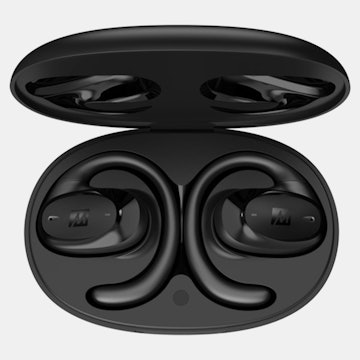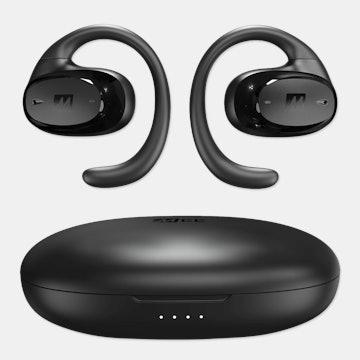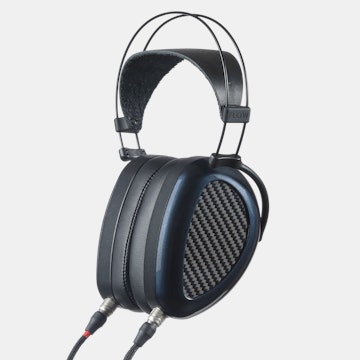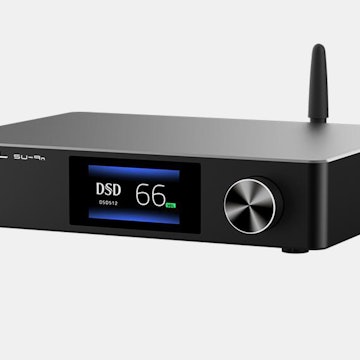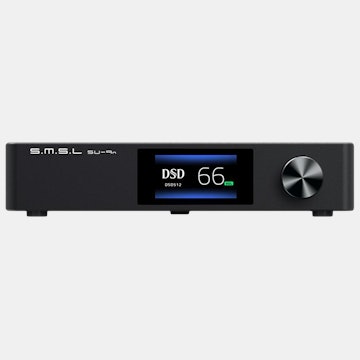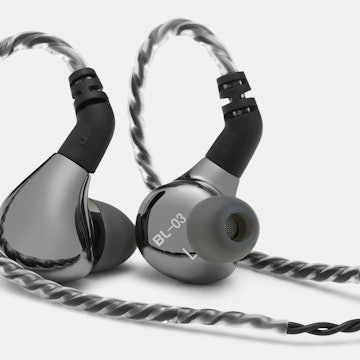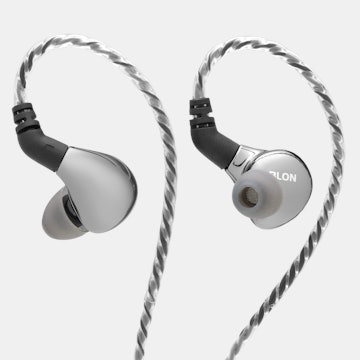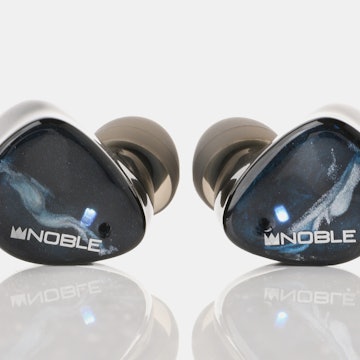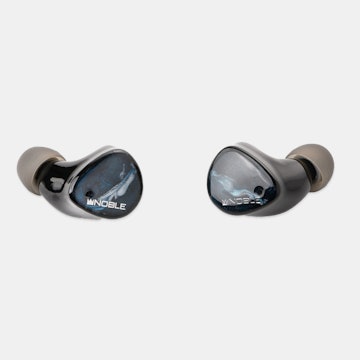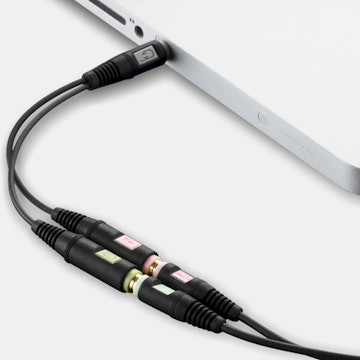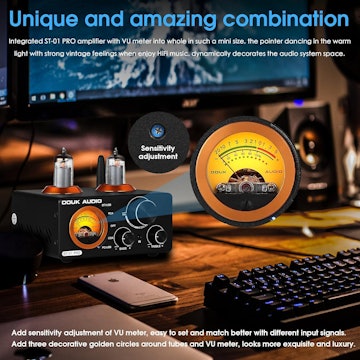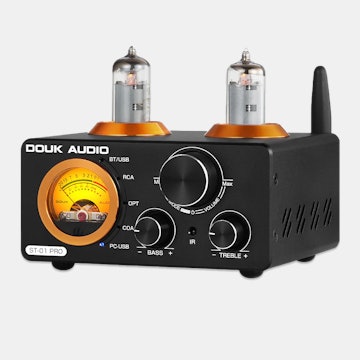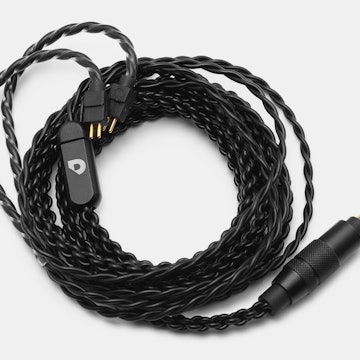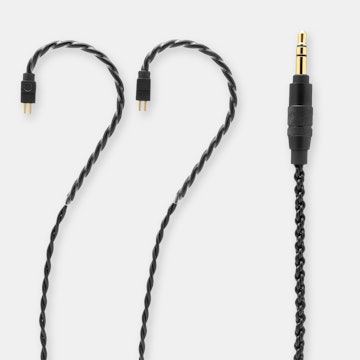Click to view our Accessibility Statement or contact us with accessibility-related questions


















Showing 1 of 192 conversations about:
SchmittAB
0
Aug 25, 2021
bookmark_border
Someone, ANYONE, convince me that a cable could actually be worth this kind of money.

mattris
1266
Keyboard Club Member
Sep 3, 2021
bookmark_border
SchmittABWhat headphones do you use?
What amplifier do you use?
What DAC do you use?
Do you value quality workmanship, premium materials, a lifetime warranty, and supporting a company that makes its cables in the USA?
Then there's the matter of your listening discernment abilities and other personal variables...
Soix
17
Sep 24, 2021
bookmark_border
SchmittABDid you not read the multitude of very positive reviews here by people who actually bought the cable and say it’s well worth the money for the significant improvements they’re experiencing? If that’s not convincing to you I don’t know what else could be. Or are you one of those who’ve just made up your mind cables don’t make a difference and aren’t worth buying no matter what?
(Edited)
SchmittAB
0
Sep 28, 2021
bookmark_border
SoixWhat I'm really asking for here is some evidence that those people ain't all just getting taken for a very expensive ride.

mattris
1266
Keyboard Club Member
Sep 28, 2021
bookmark_border
SchmittABWhat evidence would you accept? Have you ever heard "expensive" cables? What gear comprises your headphone rig?
Soix
17
Sep 29, 2021
bookmark_border
SchmittABAh, I see. So of the upwards of 50 people here who’ve mostly given these cables 5 stars for the tangible performance improvements they’ve brought to their music, you’d say they’re wrong because there are no measurements to tell them why they’re hearing what they’re hearing? Well, that’s one way to go. Good luck with that.
Soix
17
Sep 29, 2021
bookmark_border
SchmittABSo, you’re saying 50ish people are kidding themselves or not hearing what they’re hearing because there are no measurements. Does that seem likely to you? On the flip side, where are your measurements showing cables make no difference in sound quality? I’d love to see them.
Victorfabius
105
Oct 6, 2021
bookmark_border
Soix@Soix, you've actually hit the concept close to the mark, though it's a little more convoluted. Are 50+ people kidding themselves? Absolutely. Are 50+ people accurately describing their experience? Absolutely. Can both be true at the same time? Absolutely!
Do you recall the viral Yanni vs. Laurel debate? Basically, you had one sound (admittedly there is a situational impact), but people's interpretation differed on what they heard. Similar to the later "brainstorm" vs "green needle" audio illusion. So, people's interpretation of audio, while accurate to them, may not accurately reflect to another.
One further reason for this is called "cognitive bias", and this plays a significant factor in a person's judgements and reasoning. I would actually be surprised if any of the reviews of the Cardas cables were not impacted by one or more cognitive biases. That's not a condemnation; rather, it's recognition. Were I to leave a review of anything, you can bet that my review would be impacted by cognitive biases.
The problem cognitive bias introduces is that it creates a certain unreliability. Eliminating bias in reviews is particularly difficult. For example, Amir at Audio Science Review recently posted a video about blind testing (which is how one helps eliminate bias in reviews) that contains generally good information about the subject. Whether you like the site/Amir or not, that video is quite accurate and I recommend it for that reason alone.
So, when it comes to cables, how can we determine whether the review is subject to bias? Look for their stated testing methods. If they don't mention blind testing, you can be reasonably certain there's bias. Doesn't tell us how that bias presents, though.
So, in speaking of cables in particular, how can we help understand the impact of bias in the review?
First, we need to ask: how can cables affect sound? What's going to be within scope of the impact cables can actually bring? This way, if someone talks about using a low output impedance amp and a high impedance headphone, we can immediately disregard the statement as hopelessly biased (I've made my fair share of these, if I'm being honest...).
Second, we need to ask: did the reviewer match everything (equipment, music selection, volume, environment, etc) to make a fair comparison? Do they describe the cable they're comparing it to?
Third, we need to ask: did/does the reviewer describe the methods used for testing? Are they following repeatable methods? Did they introduce an element that could taint their review?
Finally, we need to ask: is there anything suspicious or unusual about the collection of reviews for this product? Are the reviews consistent in the changes the cable is supposed to make? Is the language used to describe the changes concrete or vague? Do the reviews use well-defined terms or does the language leave require interpretation for understanding? Are all the reviews that mention sound/audio quality positive? How many people talk about the audible aspects of the cable? For those that talk about the physical qualities of the cable, what are they saying? Are there unusual patterns that might indicate review farming?
So, once we approach the reviews on Drop with these questions, we quickly see that bias is readily apparent (I read through the first ~15, and it was 100% biased in some fashion). Again, that's neither unusual nor unexpected; I think I have left reviews here on Drop and 100% of my reviews are also biased.
What it does though, is prevent proper communication to @SchmittAB that there's value in the cables where audio is concerned. Doesn't mean that the people who left the review didn't experience what they say, only that the experience can't be repeated or experienced by another.
That's the point: we may have 50 people saying they can hear Yanni, but it doesn't mean that we won't hear Laurel.
Lastly, here's a biased sample of measurements that show the minimal impact of cables:
https://www.audiosciencereview.com/forum/index.php?threads/norne-audio-premium-headphone-cable-review.22457/
https://www.audiosciencereview.com/forum/index.php?threads/morrow-sp3-review-speaker-cable.22834/
https://www.audiosciencereview.com/forum/index.php?threads/analysis-plus-oval-digital-xlr-cable-review.11271/
https://www.audiosciencereview.com/forum/index.php?threads/audioquest-wind-high-end-cable-review.17065/ From the same source, because I got lazy. Last one shows a little bit on how a cable can affect sound, though it's an RCA cable and not a headphone or speaker cable.
https://www.audiosciencereview.com/forum/index.php?threads/morrow-sp3-review-speaker-cable.22834/
https://www.audiosciencereview.com/forum/index.php?threads/analysis-plus-oval-digital-xlr-cable-review.11271/
https://www.audiosciencereview.com/forum/index.php?threads/audioquest-wind-high-end-cable-review.17065/ From the same source, because I got lazy. Last one shows a little bit on how a cable can affect sound, though it's an RCA cable and not a headphone or speaker cable.
Soix
17
Oct 6, 2021
bookmark_border
Victorfabius“Doesn't mean that the people who left the review didn't experience what they say, only that the experience can't be repeated or experienced by another.”
How could you possibly know this for sure? You can’t. You’re just biased.
Victorfabius
105
Oct 6, 2021
bookmark_border
Soix“How could you possibly know this for sure? You can’t.”
I disagree for two reasons:
- It’s not possible to accurately recreate the experience, especially when we don’t have details on how to do so;
- I believe there’s an inherent subjectivity of experience, which means that what one experiences is unique to his/her self (which is why methods of review are critically important to get as close as one can to what another experienced)
- What kind(s) of bias do you see in my response(s)?
- What kind(s) of bias do you see in your response(s)?
Soix
17
Oct 6, 2021
bookmark_border
Victorfabius“It’s not possible to accurately recreate the experience, especially when we don’t have details on how to do so”
WRONG!!! I’ve had five non-audiophiles over to hear my system (all at different times) who had no idea what interconnects I had in my system. One was the original Acoustic Zen Matrix Reference and the other was their Silver Reference ll that were hooked up both between my DAC and preamp and between my preamp and amp. The Matrix is a copper IC designed to fully communicate the tonality of a system whereas the SR ll has silver in its conductors and is designed to present a more detailed and “neutral” presentation. In 100% of the cases and listening to the same music, they all identified the SR ll as the more detailed and “clear” (to use their words) versus the Matrix that they described as less detailed and more “full” sounding. They all nailed it exactly. I’ll take my ears and this personal experience over your “theories” seven days a week and twice on Sunday. Bury your head in the sand if you will, but you’re wrong. Take your head out of the books and actually go listen to some good and different interconnects (both analog and digital), speaker cables, and power cords, and maybe even you will realize there’s something to this and we’re not all just hearing things we are supposedly biased to hear. Your ears are much more finely tuned instruments than measurements can currently reveal, which you understand once you’ve heard a lot of gear over a long period of time. Or, just keep reading books and citing studies. Whatevs.
Victorfabius
105
Oct 6, 2021
bookmark_border
Soix"WRONG!!!"
If we were talking about gatherings, then perhaps. The topic on hand was, naturally, reviews and in particular, the ones here on Drop.
Again, the questions remain:
1. What kind(s) of bias do you see in my response(s)?
2. What kind(s) of bias do you see in your response(s)?
I can see multiple in both our responses. Here's a freebie: selection bias.
Thanks for engaging further.
Soix
17
Oct 7, 2021
bookmark_border
VictorfabiusJust a refresher on what exactly you said...
“Doesn't mean that the people who left the review didn't experience what they say, only that the experience can't be repeated or experienced by another.”
My gatherings show pretty convincingly that what people hear can be both accurate and repeatable, which means not everyone is biased to the point their ears can’t be trusted or their experience translatable to others.
“I believe there’s an inherent subjectivity of experience, which means that what one experiences is unique to his/her self (which is why methods of review are critically important to get as close as one can to what another experienced)”
You can “believe” whatever you want, it doesn’t mean all these reviews are inaccurate or biased. Just because bias CAN exist doesn’t mean it always DOES exist. The fact that Cardas makes some of the most respected cables in the industry and combined with the consistently positive reviews here it strongly indicates there are real potential benefits to be had here. Whether they’ll work for you or not only you can answer, but these reviews surely indicate these cables are worth trying if they’re in your budget and you’re looking for a cable upgrade. That’s all.
Here’s a freebie: remove head from book and actually go listen and you’ll really learn something.
Victorfabius
105
Oct 7, 2021
bookmark_border
Soix"My gatherings show pretty convincingly that what people hear can be both accurate and repeatable, which means not everyone is biased to the point their ears can’t be trusted or their experience translatable to others."
Again, that's not relevant to what I was talking about re: reviews.
Unfortunately, gatherings like that which you described are at least biased due to selection bias (alternatively, volunteer bias), availability bias, non-contemporaneous control bias, observer bias (in a manner), perception bias, and wrong sample size bias. Depending on the methods used in showing and exhibiting the equipment to others (and their experiences), the following may be introduced as well: confirmation bias, confounding or confounding by indication (or both), the Hawthorne effect, lack of blinding, positive results bias (of a sort), previous opinion bias, recall bias, and/or spin bias.
Everyone is biased. Fortunately, by being aware of that bias and these biases present, we're better able to correct for those biases.
"You can “believe” whatever you want, it doesn’t mean all these reviews are inaccurate or biased."
This is actually something we can test. Each of the biases I mentioned above are hyperlinked to a bias resource. We can go through that list, the Wikipedia list resource and the reviews here, and I'd be willing to make a gentleman's wager that we'll find at least one identifiable bias on 100% of the Cardas reviews here on Drop.
"The fact that Cardas makes some of the most respected cables in the industry and combined with the consistently positive reviews here it strongly indicates there are real potential benefits to be had here."
This goes to @SchmittAB 's question, which is: what are those benefits? My argument is that the reviews here are biased, and the type of bias that's evident is indicative that the reviews are unreliable on the whole. We ought to understand that a headphone/speaker cable needs to be able to conduct voltage (for frequency) and current (for volume) reliably to a transducer. From that, what are the practical and possible outcomes? Just because a whole bunch of people have heard that the cable is supposed to do something and then say it does so, doesn't make it so when it's not practical or even possible.
That's not to say that Cardas cables are not respected or valueless; that's why I was looking at this Drop in the first place, to see if there was a particular type of cable available to replace one of my own. Would there be any sonic improvement from this cable? Certainly not on any of my equipment: it's not possible (impedance wouldn't make a difference and there's no EMI/RF interference currently). But that doesn't mean I don't want a cable with a long warranty that matches the firmness, texture, and color scheme I desire.
"...remove head from book and actually go listen and you’ll really learn something."
You've mentioned this a couple times now and I'm not sure that you really know what it means.
Essentially, it means: "stop learning and experience, but also learn". It's a bit of a mixed message. Also a bit presumptuous and in a way, I don't quite understand why books are negatively associated here. Why is learning this way bad?
But, did you know, with learning and experiencing: it's possible to do both? At the same time?
Soix
17
Oct 8, 2021
bookmark_border
Victorfabius“I'd be willing to make a gentleman's wager that we'll find at least one identifiable bias on 100% of the Cardas reviews here on Drop”
What you consistently fail to understand in trying to superimpose your bias theories on everything and everyone is that they don’t mean the reviews here are wrong. You just assume they’re all biased and therefore must all be wrong and useless. Why? Again, just because bias MAY exist it doesn’t mean it does or that it must necessarily completely invalidate someone’s listening impressions — they may still be spot on and thus very helpful to people interested in the product. The fact that 50ish people here have given these cables near universal praise for many of the same qualities indicates either they’re all wrong and just biased to say the same thing or maybe they’re actually hearing what they’re hearing. My money’s firmly on the latter.
“Just because a whole bunch of people have heard that the cable is supposed to do something and then say it does so, doesn't make it so when it's not practical or even possible.”
It doesn’t make it not so either. And, further, you have no idea who knew or heard what before they heard the cable and wrote the reviews so you’re just making ignorant global assumptions about everyone’s experience here. Now THAT is biased.
“Would there be any sonic improvement from this cable? Certainly not on any of my equipment: it's not possible (impedance wouldn't make a difference and there's no EMI/RF interference currently). But that doesn't mean I don't want a cable with a long warranty that matches the firmness, texture, and color scheme I desire.”
Ah and the truth finally outs itself. As I suspected it’s now clear you’ve no idea what you’re talking talking about, which is why we just keep talking past each other here.
"stop learning and experience, but also learn". It's a bit of a mixed message. Also a bit presumptuous and in a way, I don't quite understand why books are negatively associated here. Why is learning this way bad? But, did you know, with learning and experiencing: it's possible to do both? At the same time?”
Learning from books and such is certainly beneficial, but as with most things — and certainly in the case of audio equipment — books only take you so far. It’s clear from what you say here and how you say it that your actual listening experience is limited and limiting your ability to assess what something actually sounds like, which is why I tossed you the freebie bit of advice of going out and listening to more types of gear rather than just bashing people who do under the guise of some super bias conspiracy. Plus, listening to audio gear is just plain fun in addition to being uber educational. You should go have more fun.
Victorfabius
105
Oct 14, 2021
bookmark_border
SoixWhen I read comments like this:
”…trying to superimpose your bias theories on everything and everyone is that they don’t mean the reviews here are wrong.”
I get the sense that the author doesn’t really understand cognitive bias, or the author would know that the bias would exist whether or not it was recognized or pointed out. Second, it tells me that said author hasn’t fully read or understood my comments here.
I have argued that the reviews are “unreliable” but certainly not “wrong”. In fact, read the very first paragraph I wrote in response to you and you’ll note two things:
- I say it’s possible that people are accurately describing their experience
- I have not edited the post
- You argue that listening to audio gear teaches more than what that gear sounds like.
- You argue that understanding the bias in someone’s review is somehow bashing them.
- You argue that you can assess from limited textual exchanges the scope of experience and ability of another on aspects never addressed in that text while…
- … simultaneously demonstrating the cognitive dissonance of your position by writing the phrase “what something actually sounds like” without any awareness multitude of biases and heuristics that impact our perceptions and evaluations.
Soix
17
Oct 14, 2021
bookmark_border
Victorfabius“Listening to audio gear is not fun, actually. It’s not über educational, either.”
HA HA HA!!!! Again, proof you’ve NO idea what you’re talking about. And, BTW, if this is the case what the hell are you even doing here???
And, just FYI and to fully out you, I’ve taken the class from Dick Thayler at Cornell University on decision making and all the biases you cite, and you’ve absolutely no idea what ur talking about and are perversely translating decision-making theory and biases to make a completely false and misleading argument here. “Listening to audio gear is not fun.” WTF??? Listening to audio gear and pursuing your best system is TOTALLY fun and you’re completely missing the point and out of your depth here dude. Go away.
https://news.cornell.edu/stories/2017/10/playful-nobel-prize-winner-laid-groundwork-his-field-cornell
Victorfabius
105
Oct 15, 2021
bookmark_border
SoixWe listen to audio with gear, not to the gear itself. Subtle point, I know, but an important distinction.
”to fully out you, I’ve taken the class from Dick Thayler at Cornell University on decision making and all the biases you cite…”
His name is Dick Thaler, though his academic publications will have him under Richard. This is interesting, because he’s worked with Daniel Kahneman who is a huge name in cognitive bias world (psychological side, anyway), and with whose work I’m a bit more familiar. Thaler’s work (and with Kahneman, no less) seems to encompass bias and decision making heuristics within economics. Did his class stick to that, or did it cover and apply course material beyond the scope of economics?
What did you learn in that class about decision-making and bias?
This is yet another opportunity to show what you know and/or provide an alternate definition for what cognitive bias is, so that you can help me learn.
”…you’re completely missing the point…”
You have the opportunity here to demonstrate that, rather than to simply say “you’re wrong because I say so”, which is where we’re at now. Instead: Elucidate. Share an article. I read the one you linked, which is about Dr. Thaler after his award of the Nobel Prize in Economic Sciences (Kahneman has received the same award, though I have not previously encountered his work related to economics). I’ll read more, too. Show me what the correct, non-perverse translation actually is.
You might even be able to change my mind.
Soix
17
Oct 16, 2021
bookmark_border
Victorfabius“We listen to audio with gear, not to the gear itself. Subtle point, I know, but an important distinction.”
No, it’s not subtle, it’s just fundamentally wrong and is the essence of what this hobby is all about. Have you tried to listen to recorded music without gear? Kinda tough, eh? Because the music signal passes through electronics, speakers, headphones, etc. the signal IS being affected by it, so it’s simply not possible to just remove the gear from the equation and is, IMO and IME, precisely what makes this hobby so interesting and fun. You and I clearly come from different planets with regard to audio, and although we may agree on certain theoretical principles we apply them completely differently here. Over my years of listening along with the number of reviews I’ve read and written over those years I’ve come to the realization that you can’t 100% replace practice with theory and vice versa — both are useful and necessary. I’m not diving into any more bias/decision-making theory here because it just won’t be productive given how differently we view the nature of audio reviews (among other things), but if you continue to want to disregard reviews like these here because you consider them fatally affected by bias or biases that’s your prerogative. I’m on the other side of this and find a lot of interesting and useful information contained in these reviews. So it goes...

